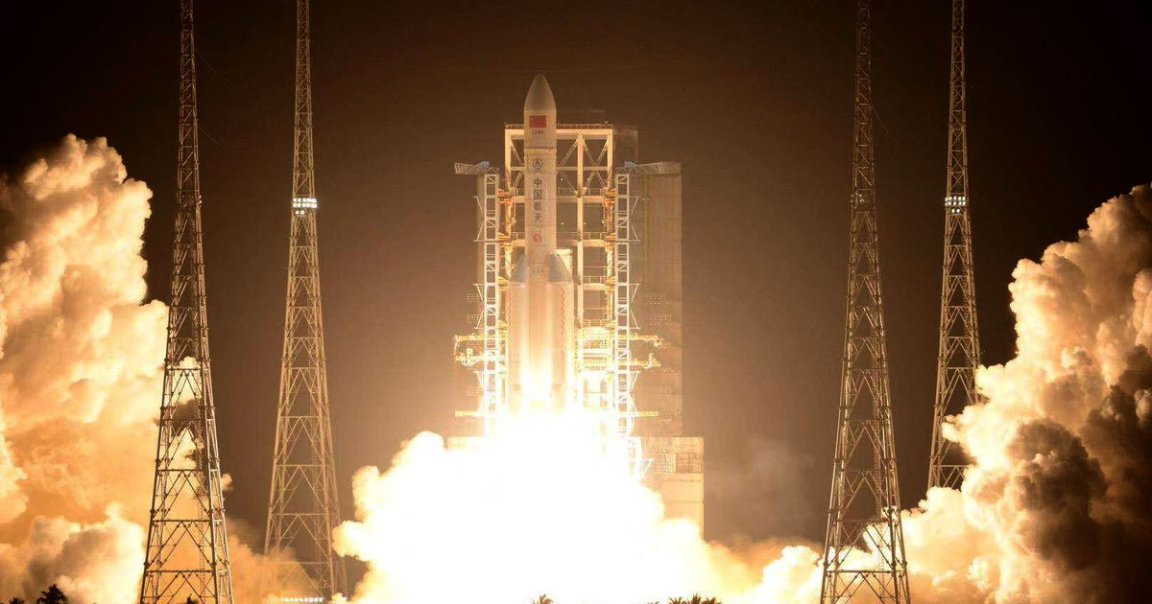
Over the last week, the world has been captivated by a Chinese rocket plummeting back to Earth in an uncontrolled descent (a 2021 “mood,” if ever there was one).
Tonight, China’s Long March 5B rocket — the fourth-largest uncontrolled descent of manmade debris in the history of space exploration — finally crashed down Saturday evening over the Indian Ocean, according to the Washington Post.
This is not the first time we’ve seen something like this, let alone something like this from China. Last May, another Long March 5B fell to Earth as well — and while most of it burned up on reentry and the majority of it landed in the ocean, parts of it did, in fact, crash down into West Africa.
Long story short, tonight’s reentry caps an embarrassing spectacle for China’s rapidly-expanding space program, which pulled global attention away from a successful launch — though it’s too soon to say whether it’ll shame Beijing into avoiding similar incidents going forward.
The latest rocket was sent into space as part of a mission to build the country’s ambitious Tiangong Space Station, carrying what will eventually be living quarters for astronauts on board the orbital outpost.
Earlier this week, it was established that any damage related to the crash-landing of the Long March 5B was technically the responsibility of China. And U.S. officials made it clear that they were not, in fact, going to attempt to knock this thing out of the sky.
China isn’t the only country that’s occasionally had trouble controlling its orbital flotsam. Way back in 1979, NASA’s first space station, Skylab, plummeted back to Earth in a similar uncontrolled fashion, spewing parts across parts of Australia — and, like China’s latest debacle, prompted a huge media sensation in advance of its descent as the public speculated about where it would land.
Read more: Debris from Chinese space rocket booster re-enters Earth’s atmosphere over Indian Ocean near Maldives, China reports [The Washington Post]
More on the falling rocket: Secretary of Defense: We Will Not Shoot Down Plummeting Chinese Deathrocket